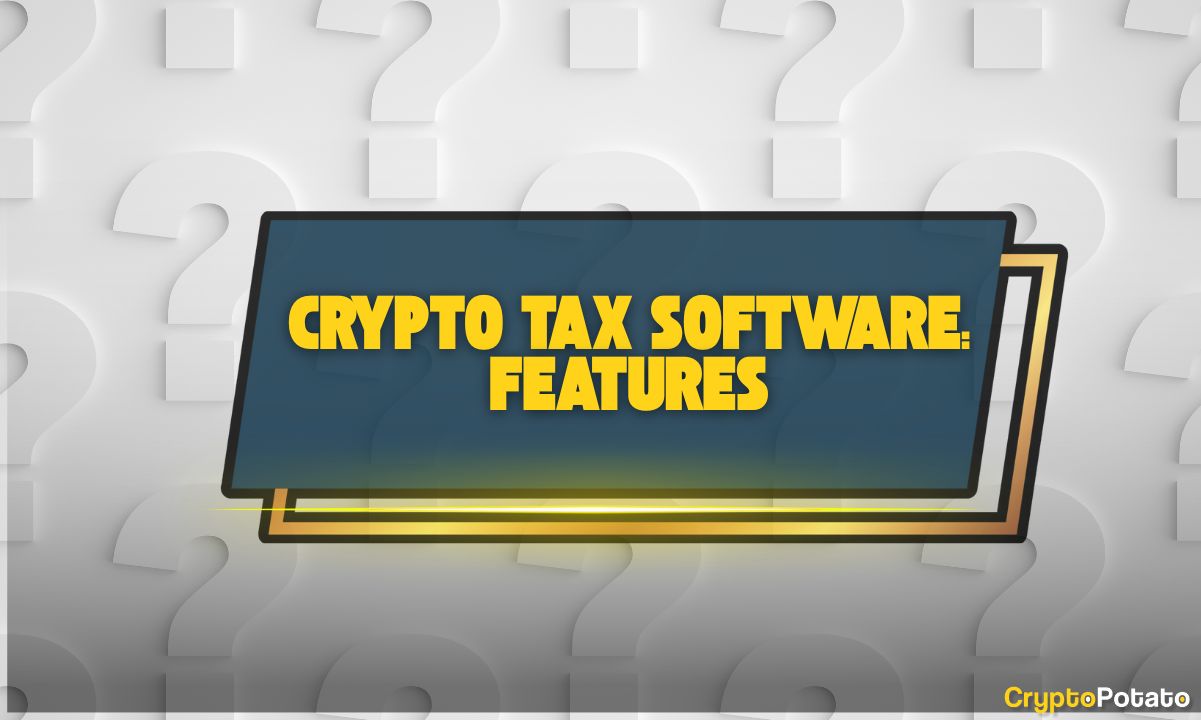ForkLive Feed
Fork breaking news and instant alerts. Crypto Feed's minimalist interface delivers verified headlines, price movements, and protocol updates the moment they happen. Fast, focused, no fluff.
 Controversial Bitcoin Proposal Targets Data Abuse Risks With Soft Fork Plan
Controversial Bitcoin Proposal Targets Data Abuse Risks With Soft Fork PlanBitcoin developers are debating a new Bitcoin Improvement Proposal (BIP) that would temporarily restrict the amount of arbitrary data attached to transactions—an effort aimed at curbing potential abuse following the Bitcoin Core v30 update that lifted limits on OP_RETURN...
 First Bitcoiner to Go to Space Slams BIP-444: 'A Bad Idea'
First Bitcoiner to Go to Space Slams BIP-444: 'A Bad Idea'F2Pool co-founder Chun Wang has joined the long list of critics of the soft fork proposed by controversial developer Luke Dashjr
 Bitcoin Faces Fork Risk: BIP-444’s Legal Warnings Ignite Community Backlash
Bitcoin Faces Fork Risk: BIP-444’s Legal Warnings Ignite Community BacklashBIP-444 suggests rejecting the fork could bring “legal or moral” risks, angering the community over the perceived coercive language.
 Bitcoin Faces Fork Risk: BIP-444’s Legal Warnings Ignite Community Backlash
Bitcoin Faces Fork Risk: BIP-444’s Legal Warnings Ignite Community BacklashThe Bitcoin (BTC) developer community is facing some disquiet after the publication of Bitcoin Improvement Proposal 444 (BIP-444), a “reduced data” soft fork that aims to restrict certain types of data storage on-chain. The proposal, introduced by contributor dathonohm and linked to long-time developer Luke Dashjr, has triggered debate due to language suggesting legal consequences for rejecting the fork. The Contentious Proposal Published on October 24, 2025, BIP-444 is labeled a “Reduced Data Temporary Softfork.” Its main goal is to stop people from storing large files, like images, within Bitcoin transactions. The authors argue this is needed because Bitcoin Core 30 lifted the 80-byte cap on OP_RETURN transactions, allowing users to store nearly 4 MB of non-financial data on-chain. They claim it could lead to illegal content being permanently added to the blockchain, putting every person running a Bitcoin node at legal risk. Dashjr previously described the changes made to OP_RETURN transactions as “utter insanity,” warning it would open the door to spam and unwanted data. Supporters of the modification argued that Bitcoin should remain neutral, relaying all valid transactions regardless of purpose. Now, BIP-444 appears to be a counterreaction to that liberalization, an effort to reintroduce strict limits after Core 30’s expansion. However, critics argue that the proposal’s tone and technical implications cross a line. In one section, the draft warns that “rejecting this softfork may subject you to legal or moral consequences, or could result in you splitting off to a new altcoin like Bcash.” This has been seen by many as an attempt to force the change through by using fear. Another part calls for “retroactive chain reorganization” to counter “an immediate crisis” caused by alleged illegal content in Bitcoin Core 30. This means that if a block with “troublesome content” is found, the new rules could be applied to erase it and all blocks after it, effectively rewriting a part of the blockchain’s history. Critics point out that the proposal admits it does not completely stop spam. It also places strict limits on advanced smart contracts, which could pause development on projects like BitVM. Community Division and Technical Concerns The backlash from well-known community figures has been swift and severe. Research group BitMEX Research warned that the plan could have the opposite of its intended effect. “A bad actor who wants to conduct a double spend attack could put CSAM onchain to cause a re-org and succeed with their attack,” they posted. “The proposal therefore provides an economic incentive for onchain CSAM.” Many are worried about the technical fallout. Developer Stephan Livera highlighted a comment from a fellow expert who warned that restricting Taproot scripts and removing OP_IF could “freeze funds” or block legitimate smart contract use cases like inheritance and recovery systems. Another developer, Nitesh, expressed a common feeling of frustration, posting: “The way the BIP has been worded sounds like the govt is threatening us.” Developer Matt Corallo summed up the concerns of many by comparing the careful approach usually taken with Bitcoin changes to this proposal’s aggressive style, simply stating, “This BIP: ‘YOLO’”. Supporters, however, see the measure as a short-term fix. On-chain analyst _Checkmate defended the plan, saying, “We need a temporary soft fork to stop the spread of spam. Just give us two weeks.” Dashjr himself responded to critics by saying the proposal has “no technical objections” and aims to make spam-based Taproot abuse invalid. The post Bitcoin Faces Fork Risk: BIP-444’s Legal Warnings Ignite Community Backlash appeared first on CryptoPotato.
 Bitcoin Soft Fork Sparks Fury Over ‘Legal Threats’ – Core Devs Face Backlash
Bitcoin Soft Fork Sparks Fury Over ‘Legal Threats’ – Core Devs Face BacklashA new Bitcoin improvement proposal has ignited controversy across the Bitcoin community, with developers and users clashing over claims that it threatens legal consequences for those who reject it.The proposal, titled Bitcoin Improvement Proposal 444 (BIP-444), was published late Friday by an anonymous developer using the alias “Dathon Ohm.”It calls for a temporary soft fork to limit the amount of arbitrary data that can be included in Bitcoin transactions, a move supporters say is meant to protect node operators from legal risks, but critics are calling an attempt to impose censorship on the network.Legal Threats or Misunderstood Wording? Inside Bitcoin’s Latest Developer FeudThe document, which spans multiple technical sections, includes a contentious line that has become the center of the storm. On line 261, it states that “there is a moral and legal impediment to any attempt to reject this soft fork.” A few lines later, between lines 270 and 272, it adds: “Rejecting this soft fork may subject you to legal or moral consequences or could result in you splitting off to a new altcoin like Bcash. However, strictly speaking, you are free to choose.”Source: GitHubThat phrasing triggered immediate backlash on X (formerly Twitter), with critics accusing the proposal’s authors of using “legal threats” to coerce the Bitcoin community into accepting the soft fork. Ben Kaufman, a Bitcoin developer, described it as “the most clear case of an attack on Bitcoin.” Canadian cryptographer Peter Todd shared a screenshot of the section, saying it was “clear [Luke Dashjr] expects his soft fork to get adopted due to legal threats.” A fork under the threat of “legal consequences” is the most clear case of an attack on Bitcoin— Ben Kaufman (@_benkaufman) October 26, 2025 Galaxy Digital’s Alex Thorn called it “explicitly an attack on Bitcoin” and “incredibly stupid.”Luke Dashjr, a longtime Bitcoin Core developer and outspoken critic of Ordinals, has publicly supported the proposal but denied writing it. Dashjr said on X that the soft fork is “on track with no technical objections,” describing it as a “simple, temporary measure” to buy time for a long-term solution. “This isn’t intended to be an ideal fix,” he wrote, “only good enough to give us breathing room.” No. BIP 444 is already on track with no technical objections.https://t.co/sF7HUiGgRm— Luke Dashjr (@LukeDashjr) October 26, 2025 New Bitcoin Proposal Seeks to Limit Data Storage, Citing Legal Threats to Node OperatorsThe soft fork proposal follows the release of Bitcoin Core v30, which went live earlier this month. That update effectively lifted the 83-byte limit on OP_RETURN data, allowing larger payloads to be attached to Bitcoin transactions. While only about 6.5% of reachable nodes have adopted v30 so far, according to Bitnodes data, the change has reignited debate over what Bitcoin should, and should not, be used for.Source: BitnodesBIP-444’s authors argue that Bitcoin’s expanded data capacity could expose node operators to criminal liability if illegal material, such as child sexual abuse content, is uploaded to the blockchain.“If the blockchain contains content that is illegal to possess or distribute, node operators are forced to choose between violating the law (or their conscience) or shutting down their node,” the document states.“This unacceptable dilemma directly undermines the incentive to validate, leading to inevitable centralization and posing an existential threat to Bitcoin’s security model.”To address that, the proposal introduces a set of technical restrictions. OP_RETURN outputs would be capped at 83 bytes, most other scriptPubKeys at 34 bytes, and data push sizes limited to 256 bytes. It also seeks to invalidate unused script versions, restrict Taproot Merkle trees, and ban the OP_IF command in Tapscript, a change that would effectively disable Ordinals inscriptions.These measures would make some transactions previously considered valid become invalid, though the proposal emphasizes that the soft fork would last only about a year while developers seek a permanent solution.Security Fix or Threat to Bitcoin’s Voluntary Consensus?Despite the technical rationale, the proposal’s wording has alarmed many Bitcoiners. Some called the “moral and legal impediment” language “Orwellian,” referencing George Orwell’s depiction of authoritarian control in 1984.Others warned that using moral or legal arguments to push through a fork contradicts Bitcoin’s principle of voluntary consensus.Supporters of the proposal argue that the “legal consequences” phrasing has been misinterpreted. They say the line refers to the potential liability that could arise from running nodes containing illegal content, not an actual legal threat to dissenters. Dashjr himself echoed this explanation, saying, “It doesn’t say that. Maybe you can propose a clarification if you think it’s unclear.” It doesn't say that. Maybe you can propose a clarification if you think it's unclear— Luke Dashjr (@LukeDashjr) October 26, 2025 He added that “may isn’t certain,” suggesting that the clause originated in an earlier draft and should be updated for clarity.Still, many remain unconvinced. Jameson Lopp, co-founder of Bitcoin security firm Casa, criticized the proposal for failing to define what constitutes “illegal or immoral” content, noting that “legal experts disagree on the liability node operators would face.”Lopp added, “By running a node, you consent to the consensus rules of the network. If you don’t consent, you can simply not run a node.”Source: Github/LoppOthers warned that forcing consensus around the proposal could lead to a network split. A user under the handle Leonidas, known in the Ordinals community, argued that censoring data transactions “sets a dangerous precedent,” equating it to state censorship of financial transactions. An open letter to Bitcoin Core,Any serious attempt by Bitcoin Core to tighten policy rules or censor Ordinals and Runes transactions will be met with decisive action. If necessary, the $DOG Army will fund the development and maintenance of an open source fork of Bitcoin Core… https://t.co/qmWV5jXgYO— Leonidas $DOG (@LeonidasNFT) September 6, 2025 “There is no meaningful difference between normalizing the censorship of JPEG or memecoin transactions and normalizing the censorship of monetary transactions by nation-states,” he said.Meanwhile, Peter Todd claimed to have already demonstrated a workaround, posting a transaction that he said contains the entire text of BIP-444 yet remains “100% standard and fully compatible” with the proposed rules, a move that, if true, would undermine the technical purpose of the soft fork.The BIP-444 proposal has not yet been submitted to Bitcoin’s official development mailing list, a necessary step before any draft improvement proposal can move toward formal review or activation. But the uproar around its language has already deepened existing divisions between developers over the direction of Bitcoin’s protocol.The post Bitcoin Soft Fork Sparks Fury Over ‘Legal Threats’ – Core Devs Face Backlash appeared first on Cryptonews.
 Essential Crypto Tax Software Features: 2025 Feature Guide
Essential Crypto Tax Software Features: 2025 Feature GuideOver the past decade, the cryptocurrency market has grown from a pennies-worth ecosystem into a trillion-dollar industry. This is unsurprising as the market has won the hearts of retail investors, deep-pocketed individuals, institutional firms, wealth funds, and even governments. However, with many people making money from the industry, government authorities around the world have seen the need to impose taxes on crypto. Each country has its crypto tax guidelines that users must comply with. Most tax authorities mandate taxpayers to create and submit accurate tax reports showing their crypto transactions throughout the tax year. But compiling these can be difficult, especially for those who frequently engage with crypto. What’s the best solution? Crypto tax software tools. This article highlights five top software tools that you can choose from regardless of your location. We also highlighted essential crypto tax software features that will guide your choice. Key Takeaways: Crypto taxation has now become completely mainstream and unavoidable. Get ahead or overpay in taxes. Manual reporting is not only outdated, but also risky. Avoid penalties and overpayments. 2025 and 2026 bring new US reporting requirements. Choosing the right crypto tax software depends heavily on your activity level. Automation, security, and compliance are pretty much non-negotiable. Understanding Crypto Taxes As we embark on a quest to understand the essential features of crypto tax software, it is crucial to first establish a solid understanding of what crypto taxes entail and how they impact traders and businesses investing in the cryptocurrency asset industry. It is common knowledge that governments impose levies, known as taxes, on individuals and businesses, which are usually channeled into financing public expenditures and funding various socio-economic initiatives. Similarly, cryptocurrency traders and investors are also subject to paying tax on their crypto asset transactions, including capital gains tax on profits from buying and selling cryptocurrencies. Apart from countries like El Salvador, many prominent nations around the world are currently implementing their own policies on crypto taxes. For instance, in the United States, the Internal Revenue Service (IRS) considers crypto as a digital asset and treats it in the same manner as stocks, bonds, and other capital assets. Hence, the country imposes taxes on both short-term and long-term gains. In the United Kingdom, the HM Revenue & Customs (HMRC) considers crypto as property and imposes a fee on crypto gains above a £6,000 ($8,020) exemption. Meanwhile, the National Tax Agency (NTA) and the Ministry of Finance in Japan view crypto gains as miscellaneous income and treat them as taxable income. In Canada, the Canada Revenue Agency (CRA) classifies crypto gains as either capital gains or business income, depending on whether they are generated under capital or business income. In Germany, the Federal Ministry of Finance (Bundesministerium der Finanzen) imposes tax on profits generated from crypto assets sold within a year, but not on crypto assets held for more than a year. Africa is also not left out. Nations like Nigeria, South Africa, and Kenya have either introduced or are working on policies that will treat cryptocurrencies as taxable activities. Starting January 2026, Nigerians will pay tax on profits gained from crypto trades, and exchanges will be required to submit reports on users’ activities for tax purposes. On the other hand, South Africa already taxes crypto transactions under normal income tax rules, and the taxman expects taxpayers to declare their crypto assets. Criteria for Crypto Taxes Given the tax policies on crypto assets in several countries, does this imply that the government will levy taxes on every single crypto-related activity, including buying, selling, trading, and holding crypto assets? No! Certain specific exemptions and thresholds apply. For instance, buying and holding small quantities of crypto assets for personal use does not incur a tax fee in most countries. In some regions, individuals are also not required to pay tax for receiving or giving out crypto assets as gifts, inheriting from families, or donating crypto to Non-Governmental Authorities (NGOs) or a tax-exempt charity. However, below are some of the following cases where crypto investors must pay tax on transactions: Buying and selling crypto assets for fiat currencies like USD or EUR. Exchanging crypto assets for another, e.g., Bitcoin for Ethereum. Receiving or using cryptocurrency to purchase goods or services. Earning cryptocurrency through mining or staking: In this case, individuals are charged based on the current market value of the crypto asset. Receiving salary in crypto: This will be charged based on the individual’s income tax rate. Crypto received from airdrops (a promotional offer or giveaway by a crypto project) or forks (a blockchain split that creates new coins for existing holders). How Does Crypto Tax Software Work? As we have established, crypto taxes are mandatory in most countries. Yet, navigating this complex landscape can be a daunting task, regardless of your experience level. Whether you’re new to crypto, an experienced investor, or a DeFi expert, manually compiling and calculating your crypto taxes can be an arduous, time-consuming, and error-prone process. This is especially true when juggling multiple accounts across various exchanges and wallets. This is precisely where crypto tax software offers a much-needed solution, streamlining the process, saving you time, and reducing the risk of errors. Crypto tax software is a tool or platform designed to help individuals and businesses compile, calculate, and report their cryptocurrency taxes accurately. The calculation covers all crypto transactions, including buying, selling, mining, etc. How Does This Software Work? First, the user links their exchange or wallet to their preferred crypto tax software. Then, the platform extracts the user’s transaction history through the Application Programming Interface (API) after the user provides their API keys. Alternatively, the user can upload their data using Comma-Separated Values (CSV) format, especially if it’s from a self-custodial wallet. Next, the software tracks the user’s transactions and categorizes them into buying, selling, trading, and transfers. Following that, the app calculates the user’s capital gains and losses based on the transaction data by leveraging market data from trusted sources to accurately determine the market value of their cryptocurrencies at the time of each transaction. Based on the user’s tax filing status and existing tax laws, the software calculates their tax liabilities from their gains and losses, then compiles the data into detailed tax reports and summaries. The software then allows the user to review the report for mistakes and provides an avenue to edit and adjust any errors. If everything is accurate, the user can then submit the generated tax reports to the relevant tax authorities. Crypto tax software platforms not only compile your crypto transactions into tax reports, but also help track your portfolio in real time. In addition, they offer audit support and tax planning guidance, including features like tax-loss harvesting, to help minimize your taxable income. What’s new for crypto tax reporting in 2025 and what to expect going into 2026? In 2025, the Internal Revenue Service (IRS) continues treating cryptocurrencies as property – not as currency. This means that gains and losses are taxed in a similar way to stocks and real estate. In other words, if you sell, trade, convert, or even use crypto, you will typically have a taxable event. Form 1099-DA From January 2025 Starting on January 1st, 2025, crypto brokers and exchanges must issue a new form (Form 1099-DA). It reports gross proceeds from digital asset sales and exchanges. From January 2026: The same Form 1099-DA will also require reporting of cost basis. In other words, the purchase price together with fees. What this means for regular users: Many of us are likely to receive new reporting documents from exchanges. Additionally, the IRS will have more visibility into our crypto transactions. Wallet-by-wallet cost basis tracking The IRS is shifting away from a “universal pool” or the aggregated tracking of assets across wallets and exchanges. Starting in 2025, you may also need to track the cost basis and your gains per wallet or per account in accordance with Form 1099-DA. Repeal of some broker-reporting requirements in DeFi In April 2025, there was a bill signed into law, which nullified the requirement for certain DeFi platforms to have to act as “brokers” and to report transactions to the IRS under the previous rule. For regular users, this means that some peer-to-peer platforms might carry less reporting duty than before. Tax deadlines and rates Despite the new forms and reporting requirements mentioned above, the main tax deadline and rates remain the same—you have until April 15th to file your taxes. What are the Essential Crypto Tax Software Features? With a multitude of crypto tax software platforms available in the market, investors may find it overwhelming to choose the right one. There are several crypto tax software platforms with a diverse range of options, each catering to specific needs. Therefore, a crypto investor needs to identify their individual requirements and priorities. Whether you’re a casual investor or a seasoned trader, understanding what features matter most to you will help you navigate the market and select a platform that accurately meets your needs, whether that’s ease of use, advanced portfolio management, DeFi tracking, or professional support. When sourcing for a crypto tax software tool to suit your needs best, there are several features to look out for. They include: Support for local tax laws: When choosing a crypto tax software, users must check for platforms that support their country of residence. While some software tools like Koinly and TokenTax may offer multi-country support for individuals, others like TaxBit provide services primarily for EU and US users. Exchange, wallet, and blockchain integration: This is another essential feature to look out for. Ensure that the crypto tax software you plan to use supports and can seamlessly connect with the various cryptocurrency exchanges, wallets, and blockchain networks you use. This feature facilitates automatic import of transaction history, seamless tracking of holdings and transactions, and accurate calculation of tax liabilities. Security and data protection: The importance of security can never be overemphasized, especially in the crypto industry. Before choosing a crypto tax software tool, ensure that the platform has robust encryption, two-factor authentication, and secure servers to protect your sensitive financial information and cryptocurrency data from unauthorized access, breaches, or losses. A reputable crypto tax platform must adhere to industry-standard security protocols, such as SSL/TLS encryption, and maintain a strong track record of protecting user data. Compliance with local tax rules: It is essential to confirm that your crypto tax software tool complies with your local tax laws, regulations, and reporting requirements. Considering this feature will help you get accurate calculations of tax liabilities, generate necessary tax forms, and help you file taxes correctly, without the risk of audits, penalties, or fines. In addition, ensure the platform stays up-to-date with changing tax laws in case specific tax regulations are revised. Support for your transaction type: Each trader can choose to be involved in only one or more aspects of the crypto sector. This can include buying, selling, trading, staking, lending, etc. It is essential to confirm if your crypto tax platform can take into account the complexities of each transaction type and accurately handle and generate accurate tax reports for various kinds of cryptocurrency transactions. Integration with accounting tools: Seamless integration with certain accounting platforms like QuickBooks, Xero, etc, means that your transactions will sync automatically with traditional financial records. This is very important because it eliminates manual data entry, reduces the possibilities for human errors, and provides a unified view of your overall finances. AI reconciliation for missing trades: AI-powered reconciliation can detect gaps in transaction history by automatically cross-referencing wallet, exchange, and blockchain data. It can identify missing trades or mismatched records to help you ensure complete accuracy when filing your taxes. Automatic wash-trade detection: This feature identifies transactions where the assets are sold and repurchased within very short periods and, hence, disallows losses that aren’t tax-deductible under IRS rules. Practical tips for choosing the best crypto tax software By now, you probably understand quite a bit, but of course, you don’t need to opt in for a tax software that has all of these features. Here are five practical and expert tips for choosing the best solution. Match the tool with your activity level. The more exchanges and wallets you use, the more advanced your tool should be. This also means that you are going to pay a higher fee, but that’s only natural. On the other hand, if you are not as active, there is no need for you to opt in for all of the fancy features and you can save up some money. Prioritize compliance for your own country. This is especially true with the new U.S. Form 1099-DA reporting and the wallet-by-wallet cost basis rules that kicked in at the beginning of 2025. Check data import methods. Again, this should be tailored to your own abilities. If you aren’t comfortable working with APIs, use a tool that allows you to import a simple CSV table. Ensure strong data security. Your choice should have some basic security features, which include encryption and 2FA. On a more thorough level, you should look for GDPR-compliant data handling, especially if you are in the European Union. Consider some addons. Many of the tools that we cover offer services on demand, meaning that you don’t necessarily have to buy them. However, some of these “addons” can save you a lot of money. For instance, features like tax-loss harvesting and CPA support might be well worth their money in certain cases. You can also read our detailed guide on how to choose the best crypto tax software in 2025. Top Five Crypto Tax Software Tools in 2025 For an in-depth breakdown, check our guide on the best crypto tax software for 2025. Here are the top five crypto tax software you can choose from to cater to your tax needs: .cp-only-mobile{display:none} @media(max-width:720px){ .cp .table .price .cp-only-mobile{display:inline;font-weight:600;margin-right:.25rem} } Name Key Pros Price Rating Koinly Best Overall Connects with 700+ exchanges and hundreds of blockchainsSimple yet advanced interface suitable for beginners and prosIncludes tools for tax optimization and multiple accounting methodsFully compliant with GDPR and SOC 2 security standards Price: $49 - $199 4.9/5 Visit Website CryptoTaxCalculator Ideal for DeFi and NFT Users Covers thousands of integrations across DeFi and NFTsAI automatically detects errors and missing dataAccurately handles complex decentralized transactionsFast, responsive customer support team Price: $49 - $499 4.7/5 Visit Website CoinTracker Best for Exchange-Based Portfolios Compatible with 500+ exchanges and walletsDirect TurboTax export for smooth filingFree portfolio tracking with real-time balance updatesUser-friendly dashboard with clear portfolio insights Price: $59 - $3499 4.8/5 20% OFF for Cryptopotato readers Visit Website CoinLedger Top Choice for Frequent Traders Seamlessly links with major exchanges and tax softwareSupports DeFi, NFTs, and advanced trading productsOffers built-in tax-loss harvesting and CPA-ready reportsDesigned for quick and simple tax filing Price: $49 - $199 4.9/5 10% OFF for Cryptopotato readers Visit Website TokenTax Best for Professional & High-Volume Traders Works with both centralized and decentralized platformsProvides access to CPAs and audit support on demandTracks real-time gains and losses for active portfoliosIdeal for advanced traders handling large transaction volumes Price: $65 - $3499 4.6/5 Visit Website Koinly Often regarded as the best crypto tax software, Koinly offers a wide range of services that match the needs of users in 20+ countries. It tracks crypto transactions across staking, DeFi, NFTs, and much more. It also makes it easy for users to import transactions automatically from dozens of exchanges, wallets, and blockchains, meaning you spend less time generating tax reports. The platform’s dashboard offers clear visual summaries of your trading activity, helping you track performance. CryptoTaxCalculator CryptoTaxCalculator is another top choice for those seeking crypto tax software solutions. The platform boasts an interface endowed with the necessary tools to track transactions across centralized and decentralized crypto exchanges. It also tracks tokens derived from airdrops, staking activities, and other crypto-based services. The platform allows users to calculate their tax reports as far as 2013. CoinTracker CoinTracker doubles as a crypto tax calculator and a portfolio tracker, giving users a complete picture of their digital assets. It connects seamlessly to most major exchanges and wallets, automatically syncing data to generate tax reports. The platform supports a wide range of activities, including staking, NFTs, and DeFi. The platform’s interface allows users to track performance and calculate gains and losses with ease. CoinTracker is also great for long-term investors who want to view their overall profit trends. It currently serves over three million users globally. CoinLedger CoinLedger is a crypto tax software that helps users to fulfill their tax obligations through its intuitive interface. It currently serves over 700,000 crypto investors in various countries. It also provides white glove services to users who want the platform to import and classify their crypto transactions for them. It also has a dedicated learning section for those who want to amass tax-focused knowledge to better understand how tax works. TokenTax TokenTax is considered one of the most advanced crypto tax software options available. The software supports every type of crypto activity, from DeFi and NFTs to margin and futures trading. TokenTax also provides audit-ready documentation, making it ideal for investors handling complex or large-scale portfolios. Users can choose from different plans depending on their trading volume and support level. Its professional team helps with international tax filings, making the service popular among global crypto traders. Crypto tax software vs Manual tax reporting Having discussed crypto tax software at length, you may still wonder if they are really worth the expense. Here is an unbiased comparison between automated crypto tax software and manual tax reporting: Crypto tax software Pros Eliminates human error. Handles complex transactions. Saves you time. Useable without tax expertise. Cons Most services are expensive. Susceptible to a security breach. Relies heavily on only the provided data. Manual tax reporting Pros You retain complete control. Cost-effective Increased privacy. Provides an opportunity to gain deeper financial knowledge. Cons High risk of error. Time-consuming. Lack of real-time insights. Susceptible to inaccuracy. Frequently Asked Questions (FAQ) What is the best software for crypto taxes? Koinly and CoinLedger are recognized as the best crypto tax software overall. This is because of their user-friendly interface, robust set of integrations, multiple helpful features, and broad support for many different types of cryptocurrency transactions. Other popular options include CoinTracker, CryptoTaxCalculator, and TokenTax. What is needed for crypto taxes? In the US, you need to file Form 8949. You can file as many Forms 8949 as needed to report all transactions. Starting January 2025, your crypto exchange will also issue Form 1099-DA. Do I pay taxes on crypto I never sold? The answer is simple – no. The IRS (as well as most other international tax authorities) do not require you to report your crypto purchases on your tax return if you haven’t sold or if you haven’t otherwise disposed of them. How long do I have to hold crypto to avoid taxes? If you hold your crypto for more than a year after you purchase it, you would owe long-term capital gains. Now, depending on your broader taxable income and jurisdiction, that would mean that you owe 0%, 15%, 20%, or more in taxes. How do I avoid capital gains on crypto? Avoiding capital gains on crypto legally is possible, but challenging without expertise. Therefore, you should start by hiring a crypto-specialized CPA, using a crypto tax software, and keeping very careful record of your activities. Conclusion Tax obligations are responsibilities that must be settled in most countries. Do you want to enjoy your crypto adventure without fear of troubles from tax authorities? Then, you need to always cover your crypto taxes. Using crypto tax software makes the process easy, fast, and accurate. If you decide to choose from those discussed in this article, perform due diligence to ensure you make a well-thought-out decision. The post Essential Crypto Tax Software Features: 2025 Feature Guide appeared first on CryptoPotato.
 Ethereum Foundation Announces Gas Limit Cap for Upcoming Fusaka Upgrade
Ethereum Foundation Announces Gas Limit Cap for Upcoming Fusaka UpgradeThe Ethereum Foundation (EF) has announced a change to the upcoming Fusaka hard fork that will introduce a per-transaction gas limit cap.The EF unveiled the change via its blog today, with the update, also known as EIP-7825, already live on the Holesky and Sepolia testnet networks. EIP-7825 is expected to launch on the Ethereum mainnet when Fusaka goes live in December.Currently, a single transaction can fill an entire block's 45 million gas limit, which could inhibit parallel execution and open the door to Denial of Service (DOS) attacks. The change will set a per-transaction gas limit of 16.78 million to mitigate potential issues.To continue reading this as well as other DeFi and Web3 news, visit us at thedefiant.io
 Is Institutional Adoption Ethereum’s ‘Worst Enemy’?
Is Institutional Adoption Ethereum’s ‘Worst Enemy’?Ethereum’s biggest threat might actually be what most see as its next milestone — institutional adoption. At least that’s what pcaversaccio, a pseudonymous analyst at blockchain security firm Seal 911, suggested recently on X, warning that traditional finance could tame the network’s open, cypherpunk spirit.In a late September post, pcaversaccio argued that as bigger finance players enter the ecosystem, the more “influence they wanna have on future hard fork decisions,” treating compliance as a feature rather than a constraint.“Look, you can go all mainstream, but we should actually celebrate it when Ethereum isn't chosen by tradfi clowns. That means we're doing something right. I won't let Ethereum be tamed, neutered, or turned into just another corporate playground. Never,” pcaversaccio wrote.To continue reading this as well as other DeFi and Web3 news, visit us at thedefiant.io
